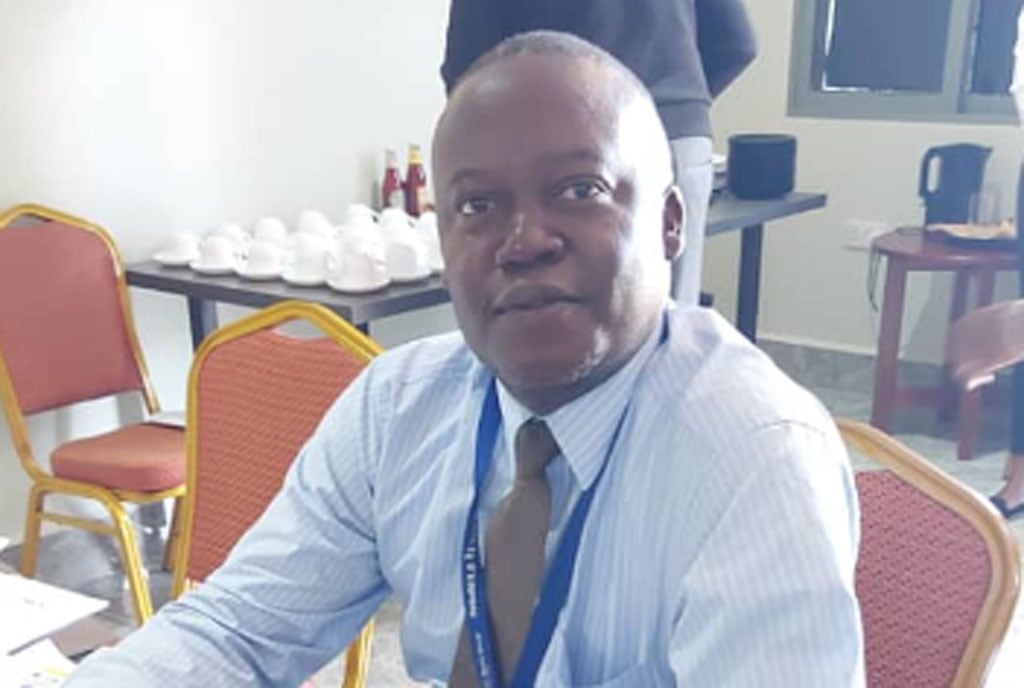Museveni to set up new anti-corruption unit

President Museveni (centre) with Ms Vivian Ddambya (2nd left) and other officials after awarding them with medals. Ms Ddambya was awarded a medal for her outstanding contribution to the field of Informaton, Communication Technology (ICT) in Uganda.
What you need to know:
The new unit will be dedicated to combating bribery in public offices.
President Museveni has promised to set up yet another anti-corruption unit inside State House, with the proposed body this time being dedicated to combatting bribery in public offices.
Mr Museveni announced his latest anti-graft plans in a Labour Day speech delivered in the rural eastern Uganda district of Namutumba yesterday afternoon.
“I am using this Labour Day to tell everybody that we are going to have a big fight. I am going to set up another small unit in my office where the investors can ring directly if anybody asks them for a bribe or delays decisions,” Mr Museveni said.
Once created, the new unit will join a considerably long list of constitutional bodies like the Inspectorate of Government (IG), Auditor General, Parliament, Judiciary and police in the fight against corruption.
Already, there are at least two known parallel organs located inside State House for the same purpose: The State House Anti-Corruption Unit (Shacu) with its unlimited reach, together with the Health Monitoring Unit which is supposed to keep tabs on public health service delivery.
So far, Shacu which is run almost like a military operation, is heavily involved in investigating widespread corruption in the country’s land offices. It, however, also actively conducts parallel ‘special investigations’ inside government, among other areas.

A Uganda Prisons Service officer leads colleagues during the Labour Day celebrations on May 1, 2023. PHOTO/PPU
The President arrived at the rain-soaked venue at around 11am and immediately after dispensing with the usual formalities, focused attention on graft which, in all its forms, costs Uganda more than Shs9.1 trillion annually.
That annual loss was revealed following a study commissioned by the IG in 2022 which was conducted by the Government Transparency Institute, an international think tank in good governance. The think tank found that a significant portion of the losses which accounted for 44 percent of government revenue in 2019, could be attributed to bribes paid to tax officials.
The President echoed what has become a common theme of his recent public addresses; singling out corrupt politicians and civil servants as “parasites” who have overtaken other problems facing the country like poor infrastructure.
“These are the ones interfering with your future. They are the ones disturbing investors, asking for bribes and delayed decision-making which raise the cost of doing business in Uganda,” he said.
Mr Museveni denounced a group within the tax body, Uganda Revenue Authority (URA), which he said goes around waylaying and blackmailing traders saying: “I will charge you so much, but if you bribe me, I will charge you less”.
“I already have a report about these groups and you will hear what will happen. The army has done its work, we have stabilised the country (and) that is why people are coming,” the President said.
Uganda’s tax collection agency has long been criticised by Mr Museveni as a den of thieves. A number of senior staff, including commissioners, have been sacked over corruption over the years.
Currently, there is an ongoing investigation by the Inspector General of Government into whistleblower reports of grand corruption inside URA.
It is feared that the country has lost hundreds of billions of shillings due to collusion in tax evasion and extortion, among others, according to the reports being investigated by the IGG.
Yesterday, the President focused attention on the economy, pointing out what he said was holding Uganda back.
“The expansion in the economy is mainly in raw materials; including more coffee, more tea, more bananas and so on. What I am telling the country is to add value to these and the economy jumps from $50 billion to $500 billion,” he said.
“Don’t delay any decisions; don’t ask for bribes. Assist the wealth creators, meaning Parish Development Model (PDM) must move very fast and correctly, and so must Emyooga,” he added.
Mr Museveni also used the celebrations to give Ugandans an insight into his feeding habits, saying: “I eat millet two times a week; millet is the best food in the world.”
He revealed that around 1979, while serving as Minister of Defence, when his salary was very low, he subsidised it with a free basketful of millet flour from his sister-in-law.
He also briefly touched on the issues of environmental degradation, promising to return to Busoga Sub-region and talk about wetlands, which have been encroached upon by rice growers.
“We want to do irrigation on the dry land and are bringing equipment for that. The plan is to make a fish pond at the end of the swamp, and make you earn more than you are earning from growing rice in wetlands,” Mr Museveni added.
In March, the government commissioned a Shs200 billion rice irrigation project to benefit more than 10,000 farmers from Bugiri, Bugweri and Namutumba districts.

Some of the religious leaders lead prayers at the Labour Day celebrations in Namutumba District yesterday.
The project, which was co-funded by the Islamic Development Bank, the Ugandan government, Busowa Rice Growers Association, and Pearl Rice, had stalled due to alleged political interference.
According to the government, validation of land by the (government) surveyor has been concluded and construction works are expected to commence this month and be completed within one-and-a-half years.
Conspicuously missing from Mr Museveni’s speech, however, was the minimum wage or wage discrepancies, which remains a contentious issue in the labour market. He only promised to discuss the question of cheap labour in response to a trade union leader’s speech yesterday
Ms Beatrice Aciro, the deputy Chairperson General of the Confederation of Free Trade Unions, earlier had said there is need to put the country’s workforce in tandem with international standards.
Yesterday’s celebrations were held under the theme: “Promoting positive work, culture and ethics: A perspective for increased investment, employment opportunities, and household incomes”.
Ms Betty Amongi, the Minister of Gender, Labour and Social Development, however, said poor ethics and corruption are failing the country, adding that we have people who go to court with bags of money, place the money on the table and then leave, before coming back in the evening with “expectations”.
She said she was appalled to learn from the Judiciary that the Commercial Division of the High Court had cases worth Shs837 billion in land, property, loans from moneylenders and banks, compensation, investment disagreements, racketeering, which she said are all occasioned by unethical behaviour.
“Unethical behaviour is costing the country heavily; for example, it is estimated that between Shs150 billion and Shs314 billion is lost annually in greater Kampala to collapsed buildings occasioned by shoddy works.
“Also, because of shoddy works on infrastructure, roads done in Greater Kampala peel off after three years, indicating that there is collusion between the technical teams and contractors, then there are evictions due to forged land titles” she added.
Reflecting on the irony that 70 percent of Ugandans profess one religion or the other, Ms Amongi cited ethical forms of corruption, including soliciting bribes or working short hours, adding that unethical behaviour in economic costs can’t be underestimated.
Namutumba ‘regrets’ Labour Day
RONALD SEEBE
A section of residents in Namutumba say they regret hosting the International Labour Day celebrations which were held at the district headquarters yesterday.
Their ire follows the decision by the organising committee to reportedly deny the district chairperson, David Mukisa; ruling National Resistance Movement party chairperson Hajji Siraje Gusongweirye and area MPs Paul Akamba (Busiki) and Mariam Naigaga (Woman) from speaking at the function.
This, they say, cast the district in bad as being a bad host, according to Samuel Gusango, the Namutumba Sub-county LCIII chairperson.
“Local leaders had planned to remind President Museveni about a number of pledges he made and ask him to construct an Industrial Park in the district, but they were denied audience with the President who was the chief guest. We regret hosting this day,” he said. “In [other] districts where the President has been, including International Labour Day celebrations in Agago District in 2019, the area MP was given a chance to speak, so, why not allow ours to speak?”
Ms Mariam Namugosa, the deputy district speaker, said they drafted a report which was supposed to be read by Hajji Gusongweirye.
“Much as we hosted the celebrations, our expectations did not come true, and what has happened will never be forgotten,” she added.
Mr Ekirita Nabongho, the councillor representing elderly persons in Namutumba Sub-county, expressed concern, saying denying local leaders a chance to speak “is bad for the NRM party”.





